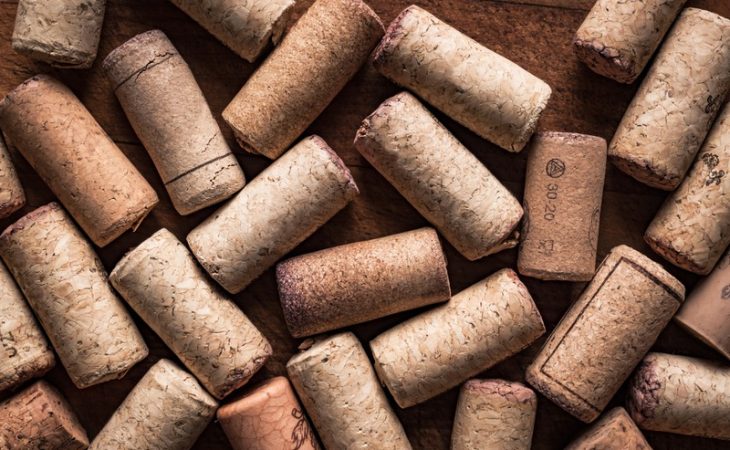With the increasing global emphasis on sustainability, the importance of responsibly sourcing natural materials like cork can’t be overstated. Consumers are more eager than ever to ensure that their purchases support ethical and eco-friendly practices. However, many find the process of verifying sustainable sourcing a bit daunting. This guide provides essential steps to help consumers confidently choose sustainably sourced cork products.
Identifying Sustainable Cork Products
Ensuring the eco-friendliness of cork products involves understanding their journey from tree to market. There are several aspects to consider when looking for sustainably sourced cork products.
Research the Vendor
Knowing the vendor’s history and practices is crucial. Reputable vendors are often transparent about the origins of their materials and the methods employed in their sourcing.
-
Investigate the vendor’s reputation online by looking at reviews or forums.
-
Check for eco-certifications that validate their commitment to sustainable practices.
-
Engage with the vendor by asking questions about the sourcing of their cork.
Understand Cork Collection Practices
Cork is harvested by peeling the bark of cork oak trees in a manner that allows it to regenerate, making it a sustainable material when done correctly. Ensuring the cork is harvested in a responsible manner is key to sustainable sourcing.
-
Ensure the harvesting process is compliant with sustainability standards.
-
Look for products from regions renowned for ethical harvesting, like some parts of Portugal.
-
Ask vendors if their harvesting supports local ecological diversity and habitats.
Seek Certified Products
Certifications are vital in verifying the sustainability of cork products. Labels such as the Forest Stewardship Council (FSC) certification are indicators of ethical production processes.
-
Choose products with certifications that assure sustainable forestry practices.
-
Look for additional labels from recognized environmental bodies.
-
Ensure the certifications are up-to-date and verifiable.
Prioritize Fair Trade
Supporting fair trade practices not only ensures sustainability but also ethical treatment of workers. This approach benefits both the environment and the communities involved in cork production.
By seeking out products labeled as fair trade, consumers can be confident that manufacturers provide fair wages and support local communities through ethical commerce.
Consider Multi-Purpose and Upcycled Products
Choosing products that are either versatile or made from upcycled materials reduces waste and promotes sustainable use. Cork’s adaptability allows it to be transformed into various useful household items.
For instance, some brands offer beautiful olive oil holder ceramic designs that combine cork elements with elegant ceramic finishes. Such products highlight the fusion of sustainability with practicality, offering long-lasting household solutions.
Support Local Artisans
Buying from local craftspeople not only aids in promoting sustainability but also supports smaller businesses that often employ more environmentally friendly practices. Local artisans often offer unique Portuguese cork products that marry traditional craftsmanship with modern aesthetics.
Engaging with local artistry provides a dual advantage: contributing to community support and acquiring distinct, sustainable pieces that have a personal touch.
Evaluate Packaging
Sustainable sourcing extends beyond the product to its packaging. Environmentally conscious companies should minimize the use of harmful materials, opting for eco-friendly packaging solutions instead.
-
Look for recyclable or biodegradable packaging options.
-
Support vendors using little to no plastic in their packaging.
-
Inquire about the vendor’s packaging policies as part of their sustainability pledge.
Opt for Durable Products
Sustainability is not just about how a product is made but also how long it lasts. Products with greater durability lessen the frequency of replacement and reduce waste. Prioritizing long-lasting cork items is a step towards sustainable consumption.
Sustainable gifting can include unique options like Toronto Portuguese gifts, showcasing cultural richness and eco-friendly craftsmanship. Choosing durable gifts ensures they are cherished for years, aligning aesthetics with ethical consumption.
Practice the Three R’s Reduce, Reuse, Recycle
Engaging in practices that focus on reducing waste, reusing materials, and recycling ensures a sustainable lifecycle for cork products. Adopting these practices can make a significant impact on sustainability efforts.
-
Repurpose cork items at home for new uses.
-
Consult local recycling guidelines to ensure proper recycling of cork materials.
-
Opt for cork over non-renewable alternatives, reducing reliance on plastic.
Keep Abreast of Sustainability Trends
The world of sustainability is ever-evolving, with new technologies and practices emerging. Staying informed about these developments helps consumers make better choices and encourages an ongoing commitment to eco-friendly living.
Joining environmental groups or forums provides insight into the latest sustainable practices and lets consumers engage with a community that prioritizes environmental responsibility.
Closing Remarks
Making sure your cork products are sustainably sourced involves researching and supporting ethical practices from production to purchase. By understanding the harvesting process, checking for certifications, considering local artisans, and focusing on sustainability in packaging and product use, consumers can make informed choices. Supporting eco-friendly practices not only protects the environment but also promotes ethical business, benefiting future generations. Embrace the power of informed choices in driving sustainable change.






